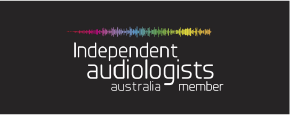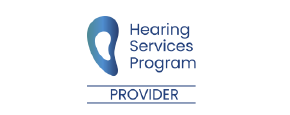Are you looking for a hearing test in Clontarf?
Are you having difficulty communicating? Our expert audiologists at Hearing Help can help improve your hearing clarity. Book your consultation today and reconnect with the sounds and people you love!
Hearing Test in Clontarf Brisbane
Are you looking for Hearing Test in Clontarf Brisbane? We are conveniently located within the Newport Physio and Health clinic at Newport Marketplace. Our experienced audiologists conduct comprehensive hearing tests to evaluate your hearing health and identify potential issues affecting your well-being. Good hearing health is crucial for overall quality of life, and regular tests are essential for early detection of hearing problems. A hearing test is a thorough assessment of your hearing and ear health, conducted in a sound-controlled environment to ensure accurate results. Our team utilises the latest technology to provide personalised care and effective communication solutions. By understanding the importance of hearing health and the hearing test process, you can take the first step towards achieving optimal hearing outcomes.
About Hearing Help
With a commitment to delivering exceptional audiological services, Hearing Help is a reputable healthcare provider dedicated to improving the hearing and overall well-being of individuals in Clontarf, Brisbane, and surrounding communities. Our team of experienced audiologists and hearing specialists are equipped with the latest technology and expertise to provide comprehensive hearing assessments, accurate diagnoses, and effective treatment options.
At Hearing Help, we understand the significance of good hearing health and its impact on an individual’s quality of life. Our services are designed to address the unique needs of each patient, from routine hearing tests to complex hearing rehabilitation. We take the time to listen to our patients’ concerns, explain their treatment options, and provide personalised care to ensure optimal outcomes.
Why Choose Hearing Help?
Hearing Help provides expert audiology services across the Newport 4020 area and the surrounding Redcliffe Peninsula region, including Clontarf, Brisbane. This local independent clinic prioritises genuine service, “Best Practices,” and client-centred care, ensuring that each client receives unbiased professional advice tailored to their unique needs. With wide access to various hearing aid manufacturers, they can provide a more inclusive range of products suited to individual budgets and requirements.

As an independent Audiology practice, Hearing Help offers several benefits. By not being owned by a large international hearing aid company, the clinic can focus on “Best Practices,” spending more time on comprehensive counselling, accurate assessments, and ensuring that devices are optimally set for each client. Additionally, the clinic has completed a thorough vetting process to verify adherence to Best Practices, guaranteeing the best possible outcome in hearing care.
Importance of hearing health and regular hearing tests
Maintaining good hearing health is crucial for our overall well-being and quality of life. Regular hearing tests play a vital role in ensuring that any potential hearing problems are identified and addressed early on. If left undiagnosed, hearing loss can lead to social isolation, decreased cognitive function, and an increased risk of dementia and depression. Furthermore, untreated hearing loss can also affect our relationships, work performance, and daily activities, ultimately impacting our overall happiness and independence. By having regular hearing tests, we can detect any changes in our hearing and take preventative measures to protect our hearing health, ensuring that we can continue to communicate effectively and engage fully with the world around us.
What is a Hearing Test?
A hearing test is a comprehensive assessment used to evaluate an individual’s hearing, identifying the presence, type, and extent of any hearing loss, as well as providing valuable insights into overall ear health. Conducted by an audiologist or a hearing specialist, a hearing test is designed to assess the ability to detect and interpret sounds, particularly in the frequency and speech range.
During a typical hearing test, the individual is placed in a sound-controlled environment, where their hearing threshold is measured using standardised procedures. The results of the test are then interpreted, taking into account the individual’s medical and audiological history, to identify any conditions that may impact their hearing, such as exposure to loud noises, age-related hearing loss, or earwax buildup.
Types of Hearing Tests
Several different types of hearing tests are employed by audiologists and hearing specialists to assess an individual’s auditory function, each designed to evaluate specific aspects of hearing. Pure-tone audiometry is a fundamental test that measures an individual’s ability to detect sounds at various frequencies. Speech audiometry, on the other hand, assesses an individual’s ability to understand and repeat words and sentences. This test provides valuable insights into the individual’s speech recognition and comprehension abilities.
Bone conduction tests are used to assess the middle ear’s function by transmitting sound through the skull, bypassing the outer ear. Otoacoustic emissions testing (OAE) measures the faint sounds generated by the inner ear, providing information about the cochlea’s function. Acoustic reflex testing evaluates the middle ear muscles’ response to loud sounds. Finally, auditory brainstem response (ABR) testing assesses the neural pathways from the ear to the brain, providing information about the auditory nervous system’s function. Each test contributes to a comprehensive understanding of an individual’s hearing abilities and helps audiologists identify specific hearing impairments. By employing a combination of these tests, audiologists can accurately diagnose and treat hearing disorders.
Preparing for Your Hearing Test
To ensure a smooth and effective hearing test experience, it is essential to be well-prepared. Understanding what to expect during the test, from arrival to completion, can help alleviate any anxiety or uncertainty. In this section, we will outline the duration of a typical hearing test and provide valuable tips to help you prepare and make the most out of your appointment.
What to Expect
Prior to your hearing test at our hearing clinic, it is essential to understand the process and what you can expect during your appointment. This will help alleviate any anxiety or uncertainty, ensuring a smooth and comfortable experience.
Our experienced audiologists will take the time to discuss your hearing concerns, medical history, and lifestyle to gain a comprehensive understanding of your needs. We encourage you to ask questions and share any relevant information to help us tailor the test to your specific requirements.
During the test, you can expect to undergo a series of assessments designed to evaluate your hearing thresholds, speech understanding, and middle ear function. These tests are painless, non-invasive, and typically take around 30-60 minutes to complete. Our state-of-the-art equipment and expert audiologists ensure accurate and reliable results. By understanding what to expect, you can feel more at ease and confident in the care you receive at our hearing clinic.
Description of the process from arrival to completion
Arriving at our hearing clinic, the process of preparing for your hearing test begins with checking in and completing any necessary paperwork to ensure a seamless and efficient experience. Our friendly reception staff will greet you and guide you through the registration process, answering any questions you may have. You will be asked to provide some basic information, including your medical history and contact details.
Once the paperwork is complete, you will be introduced to your audiologist, a highly trained professional who will conduct the hearing test. Your audiologist will explain the test procedures and ensure you are comfortable and informed throughout the process. You will be seated in a soundproof testing room, designed to minimise external noise interference and optimise test accuracy. The audiologist will then begin the hearing test, using specialised equipment to assess your hearing thresholds and identify any potential issues. Please note that you are welcome to ask questions or express concerns at any stage of the process.
Duration of a typical hearing test
With the initial steps of the hearing test process complete, including check-in and introduction to your audiologist, you may wonder how long the actual hearing test will take. The duration of a typical hearing test can vary depending on several factors, including the type of test being conducted and the individual’s specific needs. However, on average, a comprehensive hearing test can take anywhere from 30 to 90 minutes to complete.
The test itself usually begins with a visual examination of the ear canal and eardrum using an otoscope. This is followed by a series of audiometric tests, including pure-tone and speech tests, to assess an individual’s hearing thresholds and ability to understand speech. Additional tests, such as tympanometry or acoustic reflex testing, may also be conducted to assess middle ear function. The audiologist will work efficiently to complete the test, ensuring that accurate results are obtained while minimising the time required.
Tips for preparing for a hearing test
To ensure accurate results and a smooth testing process, preparing ahead of time is essential for your hearing test appointment. Before arriving, make a list of your medical history, including any previous ear surgeries, ear infections, or hearing-related issues. Additionally, note down any medications you are taking, as some may affect your hearing.
It’s also important to avoid exposure to loud noises at least 24 hours prior to your test. Loud sounds can cause temporary threshold shift, which may impact the accuracy of your test results. Furthermore, consider arriving 10-15 minutes early to complete any necessary paperwork and get settled before the test.
On the day of the test, try to be relaxed and calm. A hearing test is a painless and non-invasive procedure, and there’s no need to be anxious. Remove any hearing aids, earbuds, or earmuffs before the test, and avoid chewing gum or eating before the test, as this can create distracting noises. By being prepared and relaxed, you can ensure accurate results and a smooth testing process. This will enable our audiologists to provide you with the most accurate diagnosis and recommendations for your specific needs.
The Hearing Test Procedure
The hearing test procedure at our hearing clinic begins with an initial consultation, where you will meet with an experienced audiologist to discuss your symptoms and medical history. This consultation provides an opportunity for you to share your concerns and experiences with hearing loss or difficulties, allowing the audiologist to tailor the test to your specific needs. The consultation is followed by a series of tests, which will be conducted using state-of-the-art equipment and the latest techniques in audiological assessment.
Initial Consultation
During your initial consultation, a comprehensive hearing test procedure will be conducted by one of our experienced audiologists to assess the extent of any hearing loss and identify potential underlying causes. This thorough assessment will involve a series of tests, including pure tone audiometry, bone conduction testing, and speech audiometry. These tests are designed to evaluate your hearing threshold, or the softest sound that you can detect, as well as your ability to understand speech in different environments.
Our state-of-the-art equipment ensures accurate and reliable results, providing a clear picture of your hearing health. The tests are non-invasive and pain-free, and our audiologist will guide you through each step of the process. We understand that every individual’s hearing needs are unique, and our comprehensive evaluation will provide a personalised assessment of your hearing abilities. By the end of the consultation, our audiologist will have gathered all the necessary information to provide you with a precise diagnosis and recommend the most suitable treatment options for your specific needs.
Discussion with an audiologist about symptoms and medical history
Before conducting the hearing test, your audiologist will engage in a thorough discussion with you to gather essential information about your symptoms and medical history. This conversation is crucial in understanding the underlying causes of your hearing concerns and identifying the most effective testing methods. You will be asked to describe your symptoms in detail, including when they started, how long you’ve been experiencing them, and any factors that exacerbate or alleviate them.
Your audiologist will also inquire about your medical history, including any previous ear problems, surgeries, or conditions that may be related to your hearing, such as diabetes, otosclerosis, or Meniere’s disease. Additionally, you will be asked about your exposure to loud noises, use of hearing protection, and any previous hearing tests or treatments. This comprehensive discussion will enable your audiologist to tailor the hearing test to your specific needs and ensure accurate results. By understanding your unique situation, your audiologist can provide personalised care and recommendations to address your hearing concerns.
Conducting the Tests
With a comprehensive understanding of your symptoms and medical history, your audiologist will proceed to conduct a series of tests to assess your hearing, using specialised equipment and techniques to evaluate the function of your auditory system. The first step is typically otoscopy, where the audiologist uses an otoscope to visually examine the ear canal and eardrum for any blockages or abnormalities. This is followed by tympanometry, which assesses the mobility of the eardrum and middle ear bones.
Pure tone audiometry is then conducted, where you are presented with a range of sounds through headphones and asked to respond when you hear them. This test assesses your hearing thresholds across various frequencies. Speech audiometry may also be performaned, where you are asked to repeat words and sentences to evaluate your speech recognition abilities. Additional tests, such as bone conduction testing or auditory brainstem response testing, may be necessary to further investigate specific hearing concerns. Throughout the process, your audiologist will provide clear explanations and support to ensure your comfort and understanding.
Post-Test Consultation
Following the completion of the hearing test, a comprehensive post-test consultation is conducted to discuss the results and their implications. During this consultation, the audiologist will outline treatment options and recommendations tailored to the individual’s specific needs, ensuring informed decision-making. Additionally, scheduling follow-up appointments will be discussed to monitor progress and make any necessary adjustments to the treatment plan.
Treatment Options and Recommendations
Several treatment options are available to address hearing loss, and a post-test consultation with a qualified audiologist will help determine the most suitable course of action based on individual test results. The audiologist will consider the type and severity of hearing loss, as well as the individual’s lifestyle and communication needs, when making recommendations. Treatment options may include hearing aids, cochlear implants, or assistive listening devices. In some cases, the audiologist may recommend auditory training or communication strategies to help improve communication skills.
The audiologist will also consider the individual’s overall health and any underlying medical conditions that may be contributing to the hearing loss. In some cases, referral to an ear, nose, and throat (ENT) specialist may be necessary for further evaluation and treatment. The goal of treatment is to improve communication skills and overall quality of life. By working closely with a qualified audiologist, individuals with hearing loss can develop a personalised treatment plan that addresses their unique needs and helps them achieve their communication goals.
Scheduling Follow-Up Appointments
To ensure the most effective treatment plan is implemented, a post-test consultation is typically scheduled shortly after the hearing test to review results and outline a course of action. During this appointment, the audiologist or hearing specialist will thoroughly explain the test findings, highlighting any identified hearing loss or related conditions. The specialist will also discuss recommended treatment options, taking into account the individual’s unique needs, preferences, and lifestyle.
The post-test consultation provides an opportunity for patients to ask questions, express concerns, and seek clarification on any aspects of their treatment plan. Additionally, the specialist will schedule follow-up appointments as needed to monitor progress, adjust the treatment plan if necessary, and provide ongoing support. Regular follow-up appointments are crucial in ensuring optimal outcomes, addressing any emerging issues, and making adjustments to the treatment plan to achieve the best possible results. This proactive approach enables individuals to receive comprehensive care and maintain the best possible hearing health.
Book an appointment
Ready to hear the world more clearly? Contact Hearing Help today to schedule your personalised hearing consultation. Call us or visit our website to find your path to better hearing. We’re here to help you connect with every sound life has to offer.
Address: Newport Marketplace Shopping Centre
Tenancy M01, 10 Lakeview Promenade, Newport QLD 4020
(located inside Newport Physio rooms)
Phone: 07 3214 3641
Email: hello@hearinghelpredcliffe.com.au










